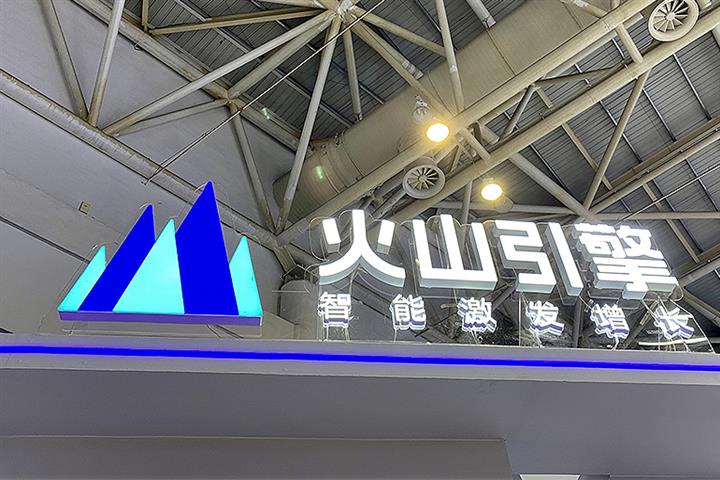 ByteDance’s Cloud Computing Unit Volcano Engine Says It Won’t Develop Large AI Models
ByteDance’s Cloud Computing Unit Volcano Engine Says It Won’t Develop Large AI Models(Yicai Global) April 19 -- Volcano Engine, a Chinese enterprise cloud services provider under TikTok owner ByteDance, said it will not develop its own large artificial intelligence models but will instead provide large AI model developers with computing power and related services.
Volcano Engine is focused on providing computing power and on the development of an original machine learning platform to help other firms exploit computing power and train large AI systems, President Tan Dai told Yicai Global yesterday.
Media reports had said Beijing-based ByteDance was set to join the large AI model race with a team led by Zhu Wenjia, an executive in charge of TikTok-related technologies. It would have been used for search functions in TikTok and its Chinese version Douyin, as well as an AI-powered image and video generator, according to the reports.
But Volcano Engine, which has attracted a great deal of market attention, has instead debuted a self-developed data-processing unit, another series of cloud products, and a new version of its machine-learning platform.
The machine-learning platform will perform large-scale scenario-based training using the short-video platform Douyin, according to Tan. The firm has also partnered with companies in the biopharmaceutical and autonomous driving sectors, he noted.
“Practical experience is quite significant,” Tan said. “Whether a platform can be deemed good depends on the experience of being polished in real, large-scale scenarios.”
Regarding Douyin's recommendation system, engineers will only need five hours to finish training specific models by sampling content from the platform gathered over 15 months, Volcano Engine pointed out. The process will cost just CNY5,000 (USD725), it added.
Douyin took less than two weeks to develop and launch its viral AI painting special effects, with algorithm engineers training relevant models.
It is predicted that large AI systems will drive a sharp increase in cloud-based AI computing power and narrow the workload gap between AI and universal computing power, bringing new opportunities and challenges to cloud service providers, Tan said.
Cost is the key to competitiveness in cloud computing, Tan noted. Cost issues need to be handled sustainably using technical means instead of through unsustainable short-term commercial means, he added.
Editors: Shi Yi, Martin Kadiev